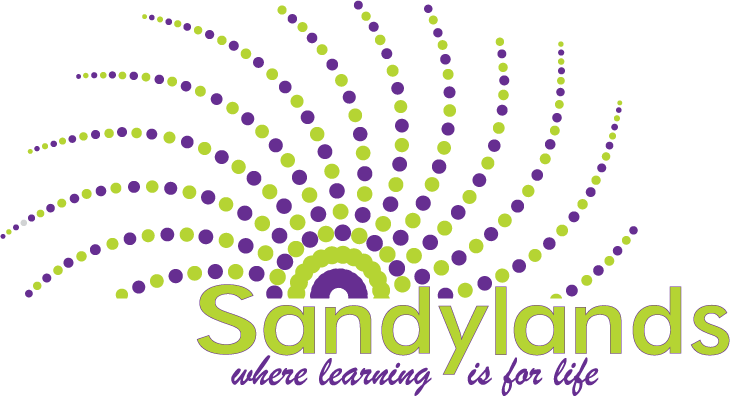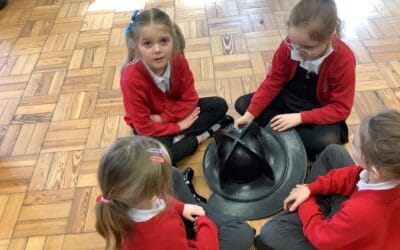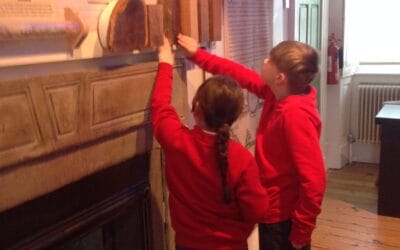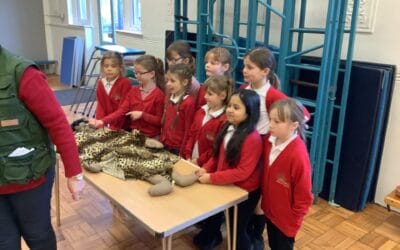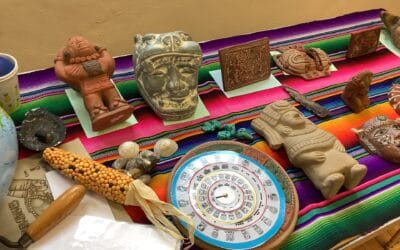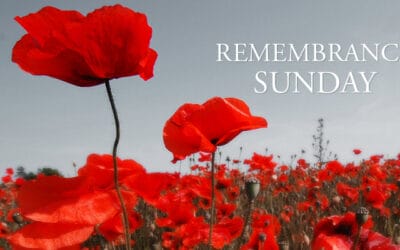History
History
Welcome to the History page.
Mr Morland leads History at Sandylands.
‘Ever since I was a child, I have always had a passion for learning about the past, brought on by listening to my grandfather’s war stories and family visits to castles and museums. At high school, History was my favourite subject and inspired by my teachers, I continued to study this at A Level and at university.
Since becoming History subject leader at Sandylands, I have been passionate about developing a high-quality History curriculum which develops children’s natural curiosity into the past, tapping into the rich local heritage of Morecambe, Heysham and Lancaster.
Over the years, I have developed links with local museums and historians to help provide the children at school with quality artefacts, sources and resources which help bring the past to life. During this time I have been fortunate to lead on several exciting whole school History projects which have included: remembering the First World War and Lancaster Castle’s role in crime and punishment in the 18th century.
I want every child at school to develop their skills as historians, asking questions about the past and thinking critically about evidence. By the time they leave Sandylands, we aim for all our children to have gained a better sense of who they are, where they came from and how events today shape their future.’
Mr Morland



Our History curriculum …
Our History curriculum…
· Provides a high-quality sequence of lessons which develop children’s natural curiosity into the past.
· To learn about the key knowledge (substantive) of important historical events, people and places locally, nationally and globally.
· Develops a better understanding of the chronological order of key events and people.
· Teaches children to use and understand relevant historical terms and vocabulary.
· Ask perceptive questions about the past.
· Use a range of high-quality artefacts and sources to learn more about the past.
· Articulate their learning, ideas and opinions about how different groups and they themselves have changed over time.
Click below to access our History Principles, Practices and Guarantee
Updated history curriculum principles practices and guarantee
History Learning Pathway
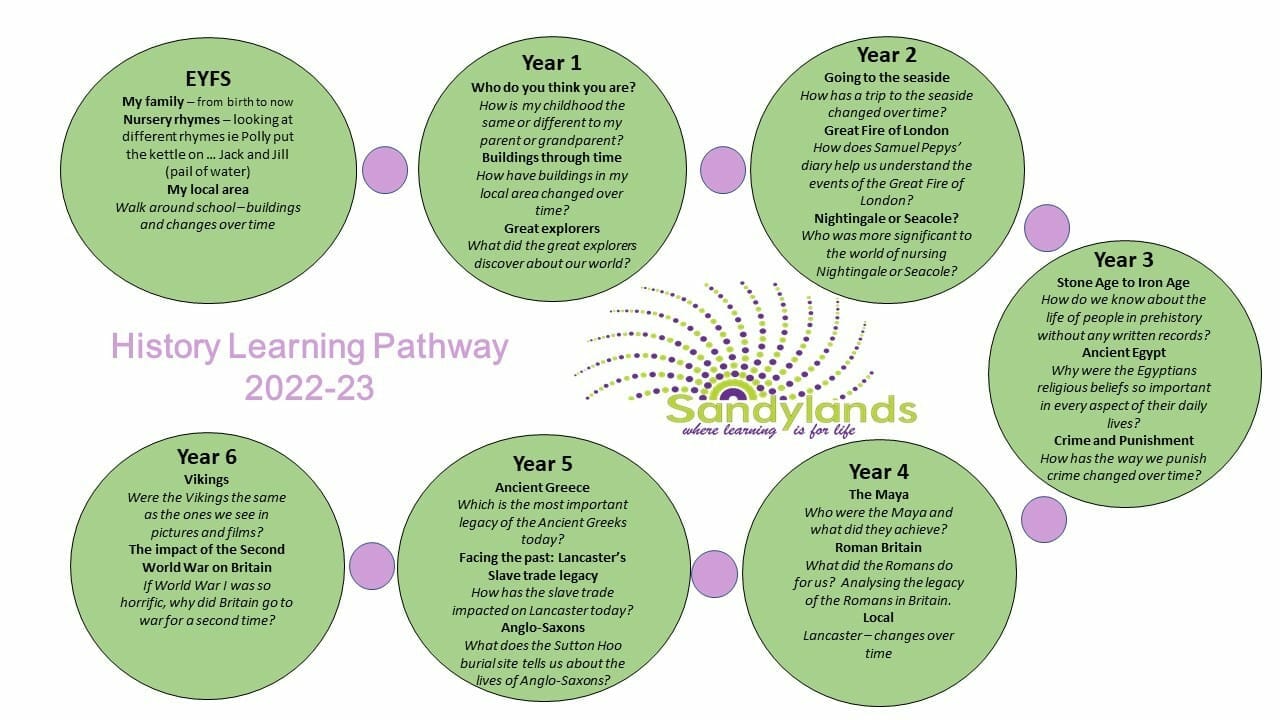
Knowledge
Knowledge
Substantive – Key knowledge of facts about important historical events, people and places locally, nationally and globally. This begins with:
EYFS- understanding their own history and important people in their family and what changes can be seen in the local community
KS1- changes within living memory- for example … own family, our school and local area and any similarities or differences over time. Events beyond living memory that are significant nationally or globally- for example…The Great Fire of London The lives of significant individuals in the past who have contributed to national and international achievements- for example …. Great Explorers, Florence Nightingale and Mary Seacole.
Significant historical events, people and places in their own locality- for example….how Morecambe has changed over time
KS2- British history – studied in chronological order (Y3 – Stone Age to Iron Age, Y4 – Roman Britain, Y5 – Anglo Saxons, Y6 – Vikings)
A local history study – Crime and punishment – how Lancaster Castle has changed in use over time
A study of an aspect or theme in British history that extends pupils’ chronological knowledge beyond 1066 – for example….How the Second World War impacted on Britain
The achievements of the earliest civilizations – for example … Ancient Egypt, Ancient Greece.
A non-European society that provides contrasts with British history …The Maya civilisation
Procedural
· Interpreting sources – for example handling and interpreting artefacts and sources
· Understanding the past – for example describing historical events and characteristics of past societies
· Chronology – for example ordering events from the past and placing them on a timeline in chronological order
· Communicate historically – for example using historical terms and vocabulary to communicate understanding about the past.


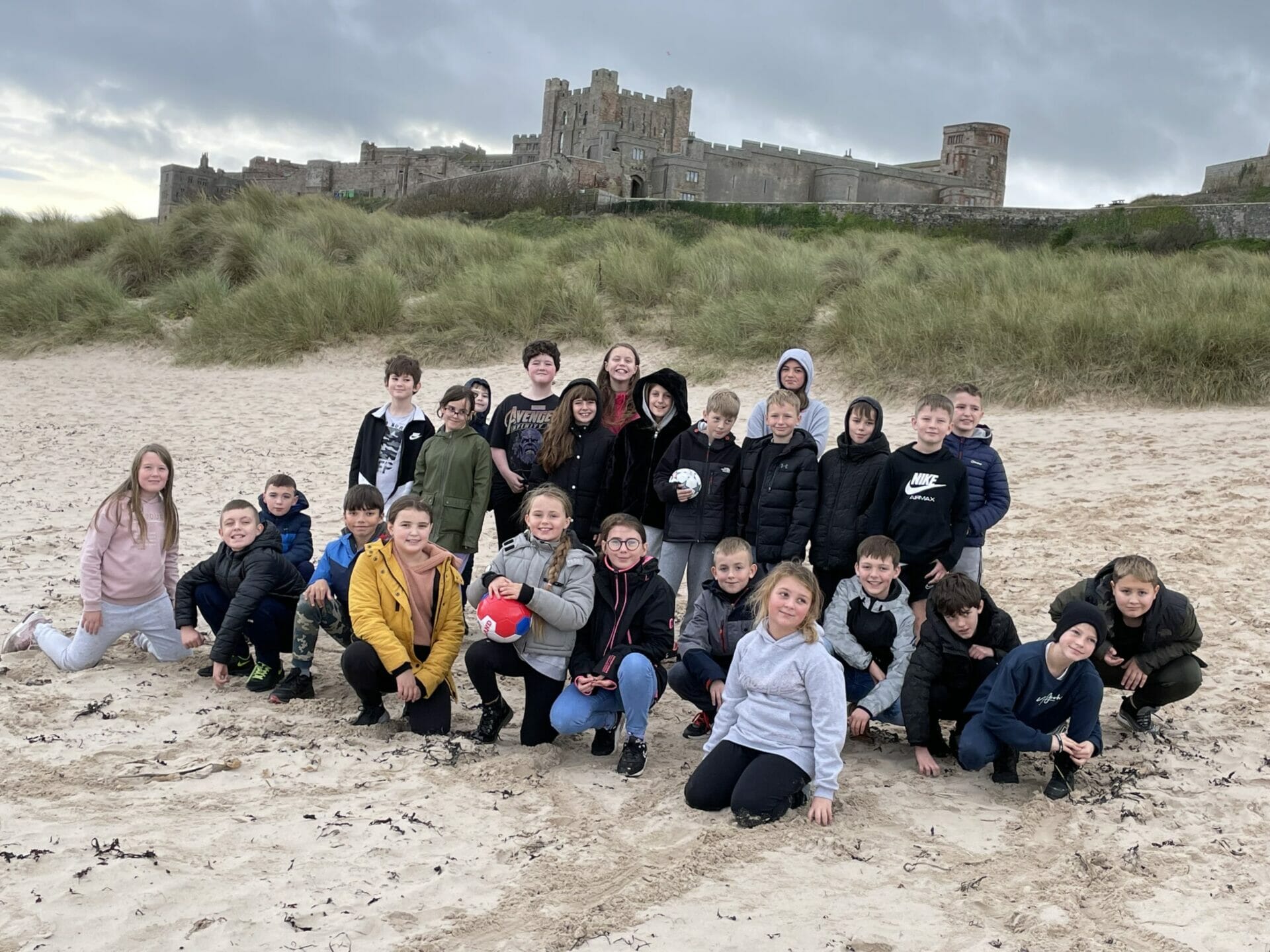
Timetabling
History is taught for an hour a week and alternates with Geography under the umbrella of Humanities. Each theme runs for 5-6 weeks and then there are opportunities for essential entitlement woven throughout the year.
Assessment
History is assessed by the class teacher and subject leader following our Sandylands model:
Checkpoint 1 – What do the children already know? Led by the class teacher at the start of each History topic/lesson
Checkpoint 2 – Teacher assessment at the end of the lesson- what have the children learnt, followed up in subsequent lessons by recapping the facts and knowledge learnt so far.
Checkpoint 3 – Teacher assessed – at the end of the unit in the form of quizzes, class discussions. This allows the class teacher to understand which children need further understanding and if there any misconceptions.
Checkpoint 4 – Teacher assessed – after 4 weeks – quizzes to check what the children know and can remember.
Checkpoint 5 – Subject leader will interview groups of children to analyse what they have learnt, how they have mastered key concepts and can apply their knowledge and understanding. The subject leader will also conduct a pupil book study and look at understanding of procedural knowledge such as chronology and using artefacts and sources.
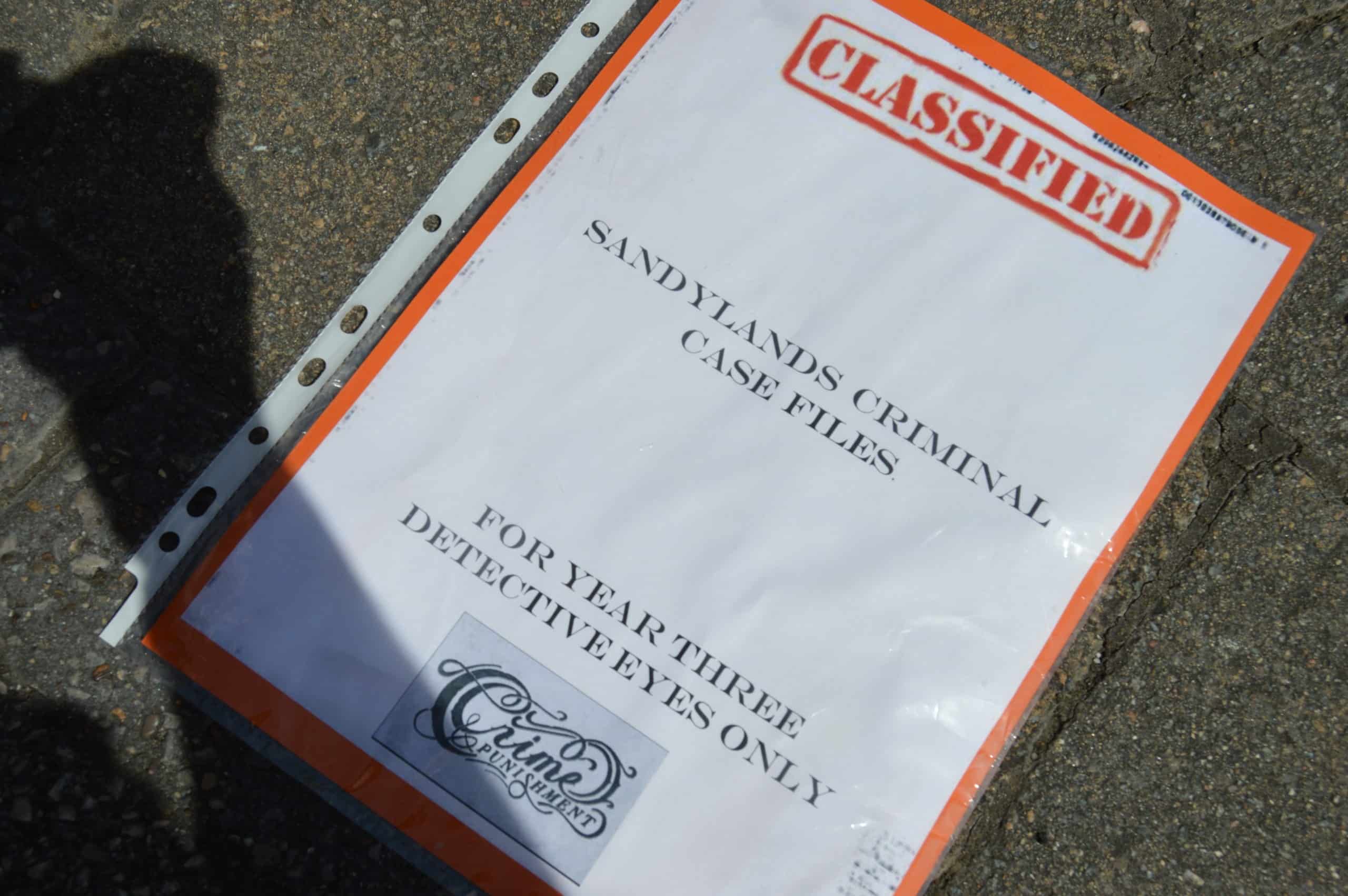

CPD for teachers
Like all subject leaders, Mr Morland is committed to continuing professional development in History. He has taken part in training alongside other History subject leaders from the Lancaster and Morecambe cluster, recently taking a lead role in an exciting new project about Facing the past- the legacy of the slave trade on Lancaster. He regularly supports class teachers with the planning and delivery of their history topics, looking at ways to engage and develop children’s enthusiasm for learning about the past.
Essential Entitlement
Great Fire of London workshop
Year 2 are learning about significant events in history. This term, we have looked at the Great Fire of London. To introduce this learning, we took part in a workshop about this event - take a look! [gallery size="medium"...
Year 5 Slave trade – Local History in action
Year 5 had a great trip last week to Lancaster as part of their local History unit all about the Lancaster Slave trade. They visited the Maritime Museum, went on a slave trade trail around Lancaster as well as visiting the Lancaster priory to see an art...
Egyptian Workshop
Year 3 had an exciting day recently when they took part in an Egyptian workshop as part of their History theme about the ancient Egyptian civilization. The children even got to try out the ancient methods of mummification.
Maya Workshops
There was a Maya workshop in school this week delivered by the Museum service and the visitor commented on the children's knowledge about the Maya civilisation. She was very impressed not only with the facts they could recall, but also the insightful questions...
Remembrance Sunday
We are so proud of our school and local community. The children have been supporting the Royal British Legion selling poppies and our soldier silhouettes are on the front yard once more ... Lest we forget
Ernest Shackleton
Year 1 could not believe it when Ernest Shackleton came to visit. As part of their History curriculum, they have been learning all about explorers. We interviewed Ernest and he told us all about his adventures!
Judges Lodgings – Servants
Year 1 had a great time visiting the Judges Lodgings as part of our History topic, 'Buildings through Time'. This was broken up into three sections. Below you can see where we learnt about the life of a servant.
Judges Lodgings – The Cottage
Year 1 had a great time visiting the Judges Lodgings as part of our History topic, 'Buildings through Time'. This was broken up into three sections. Below you can see where we learnt about The Cottage.
